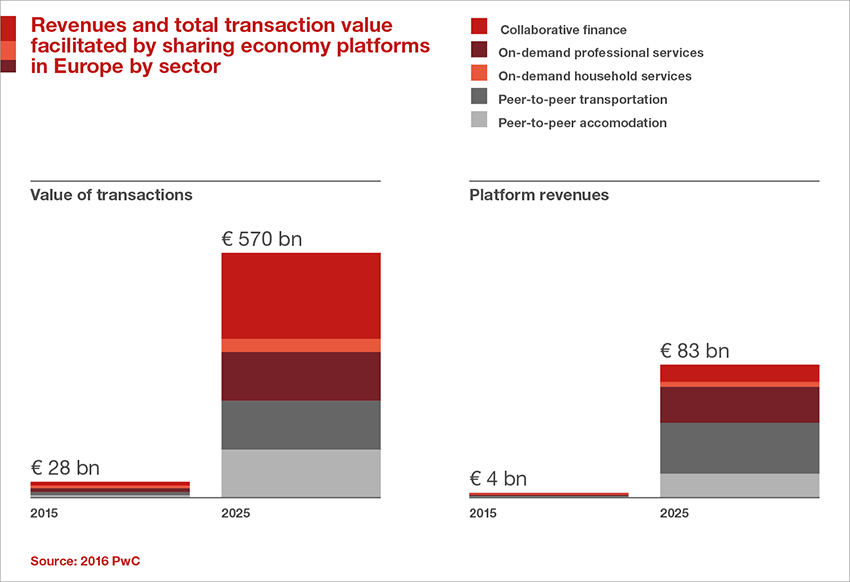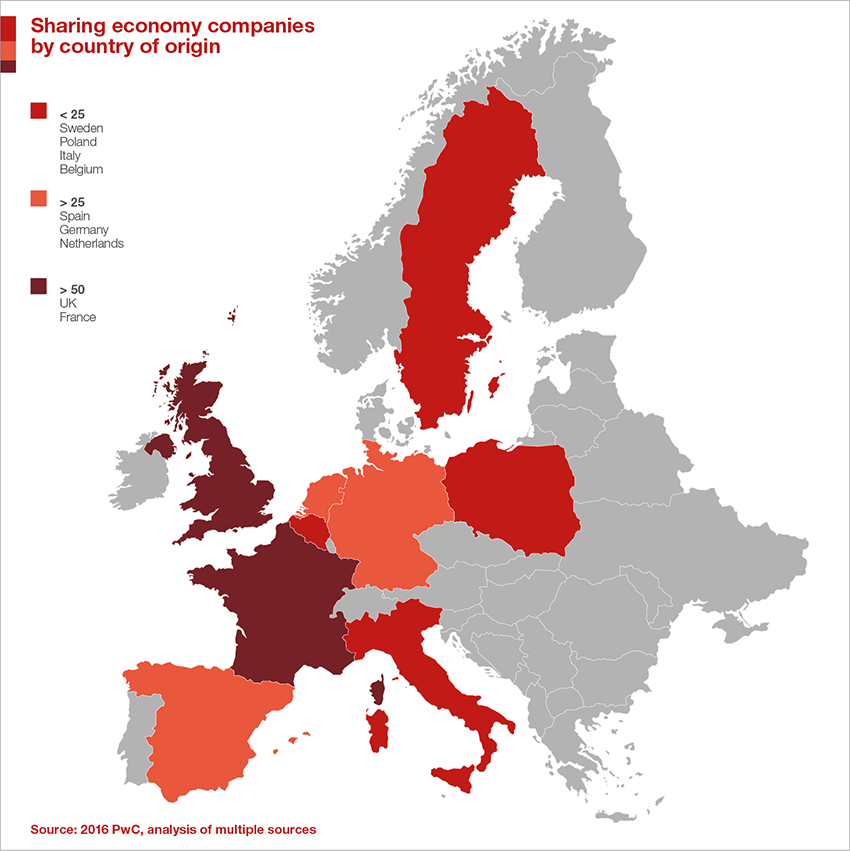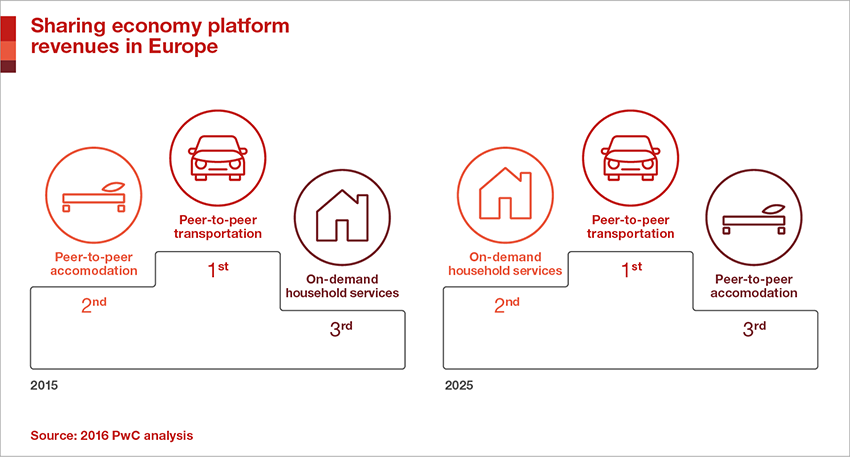13 June 2017
Crowd Based Capitalism
Sharing economy: how capitalism is changing
Aside from opinions about the benefits of the sharing economy, the impact on society of companies such as Uber and Airbnb continues to grow and to change the parameters of the employment market.
The sharing economy is profoundly changing our daily lives and this is occurring independently from what we want and what we fear. A bottom-up revolution unconstrained by geography, which some consider unstoppable, is only at the beginning of its growth curve yet it is already changing the shape of the employment market.
The definition of the sharing economy has no clear origin and is still a source of much controversy but in 2011 the American weekly Time included it in a feature as one of the 10 ideas that would change the world, alongside stem cell technology and the delocalization of jobs to China and India.
Six years on what can we say? From a financial point of view, companies like Uber are today worth around 70 billion dollars, 40 times more than Hertz in the same sector. Another symbol of the sharing economy, Airbnb, the platform for renting out rooms and apartments, has been valued at 30 billion dollars, more than one and a half times the value of the Hilton hotel chain that boasts 700 thousand rooms in 4800 hotels around the world.
Airbnb owns not a single apartment just as Uber owns no automobiles. In fact, the term ‘platform economy’ has been used to describe those organizations that, rather than owning property, control the information superhighways on which it travels, a definition that could be extended to include technological giants such as Amazon or Facebook.
Others prefer the definition of sharing economy that emphasizes the peer-to-peer aspect or the pool economy, reminiscent of the phenomenon of mutualism at the beginning of the last century.
According to those in the sector, the top 35 companies in the sharing economy are worth around 300 billion dollars. The first substantial survey of the new digital economy by the Pew Research Center in 2016 demonstrated that 72% of US citizens had used sharing services at some point. As The Economist pointed out in a cover feature in 2013, what is occurring is similar to the growth of e-commerce 15 years ago: following initial diffidence towards the use of credit cards, this experience of purchasing triumphed and has since encouraged other uses. The feature in the British publication concluded by saying “It is time to start caring about sharing”.
According to PricewaterhouseCoopers by 2025 the five main sectors of the sharing economy, peer-to-peer accommodation, peer-to-peer transportation, on-demand household services, on-demand professional services and collaborative finance, will be worth 570 billion euros, a figure 20 times greater than the 2016 value of 28 billion. Within this scenario it is the micro-entrepreneurs (providers) that stand to gain as they are estimated to enjoy an 85% share of the pie.

Furthermore, the recent report published by McKinsey Global Institute (October 2016), “Independent work: Choice, necessity, and the gig economy”, claims that already more than 162 million people in Europe and the United States (around 25% of the workforce) are involved in a form of ‘independent work’, a key feature of the sharing economy. The report divides independent workers into four segments: “free agents”, who actively choose to work independently and derive most of their income from this (30% of interviewees); “casual earners”, who use independent work occasionally (40% of those interviewed); “reluctants”, for whom independent work is their primary job and who would prefer to have a more traditional form of employment (14% of interviewees); “financially strapped”, who use independent work to augment their regular salary (16% of interviewees).
In June 2016 the European Commission issued legal guidelines and outlined the policy to govern this market with the document COM(2016)356, which begins with the statement,
“The collaborative economy creates new opportunities for consumers and entrepreneurs. The Commission considers that it can therefore make an important contribution to jobs and growth in the European Union, if encouraged and developed in a responsible manner.”

Brussels uses the term “Collaborative economy” with “reference to those business models in which activities are facilitated by the use of sharing platforms that produce an open market for the temporary use of goods and services (providers), who can operate occasionally or professionally with those who receive said goods or services (users); the intermediaries that enable the contact though online platforms. The EU’s regulatory framework highlights two key issues. The first concerns the market access requirements, in which it is noted that, "business authorizations and licenses can be required from suppliers of services only in the case that they are not discriminatory, aimed at the fulfillment of an objective of public interest and are justified and proportional in relation to that objective."
Obviously, the relationship between the platforms and service provided is of utmost importance, especially with regards to establishing the price of the transaction, the conditions of the relationship between supplier and consumer (any eventual obligations, for example) and the ownership of the resources involved in the supply of the service.
The second issue concerns the employment relationship between the platform and the worker, in the case that the platform determines the choice of activity, the remuneration and working conditions of the relationship and its subordination. This distinguishes between, Blablacar, for example, the world’s most famous car-pooling service, and Foodora, Just Eat or Deliveroo, which depend on the work of delivery staff.

“We are experiencing a new type of capitalism, a system of access that is more equal,” according to New York University Stern Business School professor Arun Sundararajan, who is considered the leading expert on the subject. For Sundararajan, crowd based capitalism, in its mix between sharing and the market will change the model of economic development, affecting GDP and the way people earn money from the job market.
